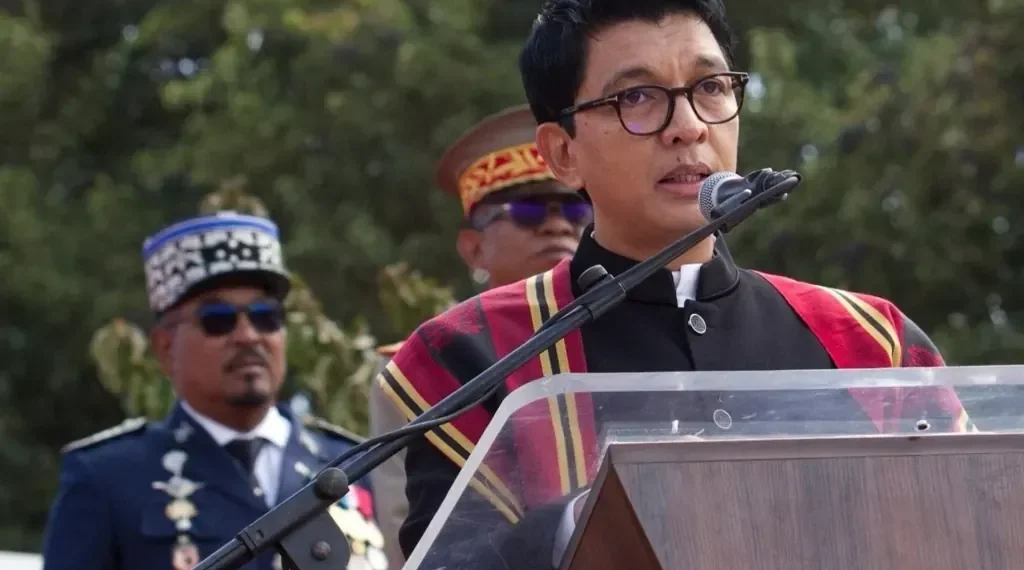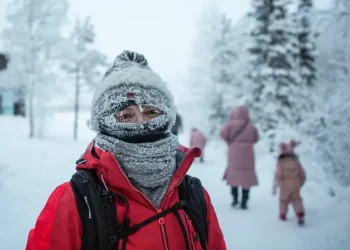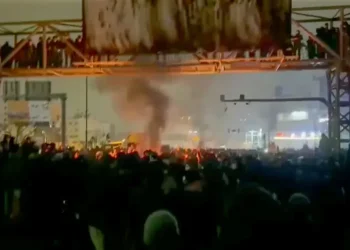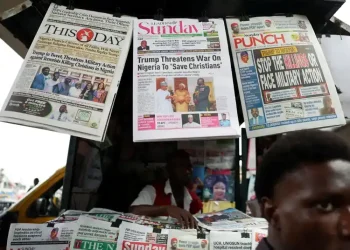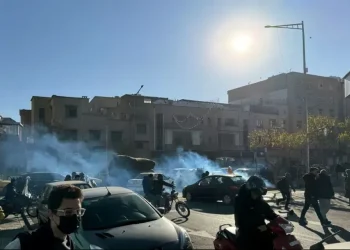Madagascar President Flees Country After Military Rebellion and Weeks of Protests
Published: October 14, 2025, 22:10 EDT
Madagascar’s political crisis deepened after President Andry Rajoelina fled the country, saying he feared for his life following a military rebellion that joined weeks of nationwide anti-government protests.
President Says He Left “to Protect My Life”
In a late-night address broadcast Monday on social media from an undisclosed location, President Andry Rajoelina confirmed that he had fled Madagascar after an elite military unit turned against his government. The president said he was forced to seek safety amid what he described as “an illegal attempt to seize power.”
Rajoelina, who has faced growing public anger over economic hardship and poor governance, stopped short of announcing his resignation. His remarks were intended for national television but were delayed for hours after soldiers reportedly attempted to seize control of the state broadcaster, according to the presidency.
The video was eventually streamed on the presidency’s official Facebook page but did not air on state TV.
CAPSAT Military Unit Joins Protesters
The crisis escalated over the weekend when members of the elite CAPSAT military unit aligned themselves with protesters calling for Rajoelina’s resignation. Thousands gathered in Antananarivo’s main square, where soldiers on armored vehicles waved national flags and were cheered by crowds.
The CAPSAT unit declared it now controls the armed forces and has appointed a new officer to lead the military. The defense minister reportedly accepted the appointment in Rajoelina’s absence.
Col. Michael Randrianirina, a CAPSAT commander, said the military “responded to the people’s calls” but denied the action was a coup. He added that the army would “let the people decide” whether Rajoelina should remain in power.
Weeks of Protests Lead to Political Crisis
Protests began on September 25, driven by a youth movement known as “Gen Z Madagascar,” over persistent water and electricity shortages. The demonstrations quickly evolved into broader anti-government unrest fueled by discontent over corruption, poverty, and inflation.
According to the United Nations, at least 22 people have died and dozens more have been injured since protests began. The UN has criticized the government for what it described as “a violent response” to largely peaceful demonstrations, while authorities have disputed the casualty figures.
Civic groups, labor unions, and students have joined the demonstrations, prompting authorities to impose nightly curfews in Antananarivo and other cities. Despite the curfews, protests have continued to draw large crowds in the capital and other regions.
Calls for Calm as Political Unrest Deepens
The African Union has urged restraint from all sides and called for dialogue to prevent further escalation. The U.S. Embassy in Madagascar advised its citizens to remain indoors, citing a “highly volatile and unpredictable” situation.
Rajoelina, who appealed for dialogue in his video message, said the country must “respect the constitution and seek a peaceful resolution.” He did not confirm how he left the country, but reports suggest he was flown out aboard a French military aircraft.
The French government declined to comment on the reports. Madagascar, a former French colony, has maintained complex ties with France, and Rajoelina’s French citizenship has been a source of controversy among his critics.
A Nation with a History of Political Upheaval
Madagascar has experienced frequent political crises since gaining independence from France in 1960. The island nation of 31 million has seen several coups and leadership changes over the decades.
Rajoelina first rose to prominence in 2009 when the CAPSAT unit helped him lead a military-backed transition that ousted then-President Marc Ravalomanana. He was later elected president in 2018 and reelected in 2023 in a vote boycotted by opposition parties.
The same military unit that helped bring him to power in 2009 has now rebelled against his leadership, reflecting deep divisions within Madagascar’s armed forces and society.
Former Officials Reportedly Flee to Mauritius
Adding to the uncertainty, Madagascar’s former prime minister and one of Rajoelina’s top advisers reportedly fled to Mauritius early Sunday. The Mauritian government confirmed the arrival of the aircraft but said it was “not satisfied” with the circumstances of its landing.
As of Tuesday, the whereabouts of Rajoelina remain unknown, and no formal interim government has been announced. Political observers warn that the situation could worsen if dialogue between military leaders, protesters, and the government does not begin soon.
International Response and Outlook
Regional and international organizations, including the United Nations and the African Union, continue to monitor developments closely. Diplomats have urged Madagascar’s leaders to avoid further bloodshed and protect democratic institutions.
Analysts say the crisis could reshape Madagascar’s political landscape, especially as younger generations demand transparency, reform, and improved living conditions. For now, the nation faces an uncertain future amid mounting political and economic instability.
This article was rewritten by JournosNews.com based on verified reporting from trusted sources. The content has been independently reviewed, fact-checked, and edited for accuracy, neutrality, tone, and global readability in accordance with Google News and AdSense standards.
All opinions, quotes, or statements from contributors, experts, or sourced organizations do not necessarily reflect the views of JournosNews.com. JournosNews.com maintains full editorial independence from any external funders, sponsors, or organizations.
Stay informed with JournosNews.com — your trusted source for verified global reporting and in-depth analysis. Follow us on Google News, BlueSky, and X for real-time updates.
